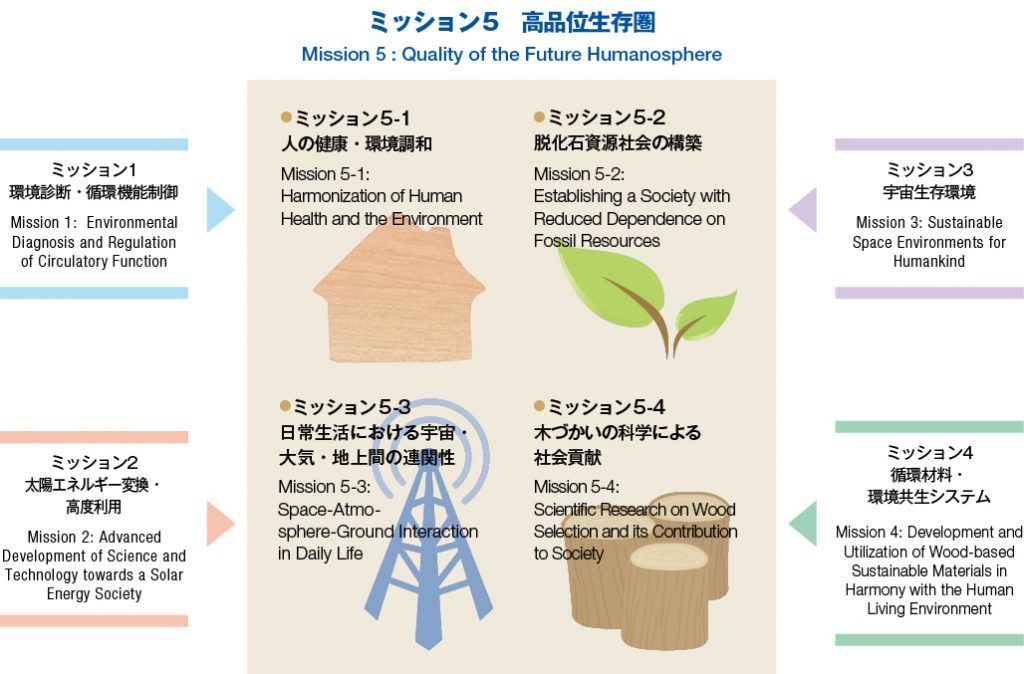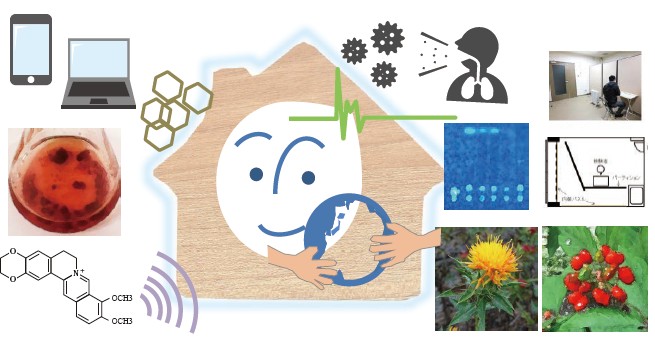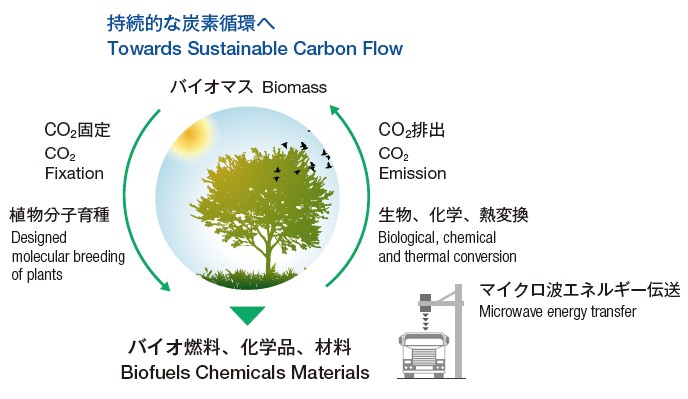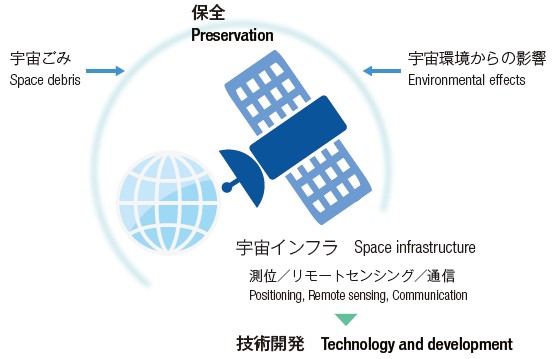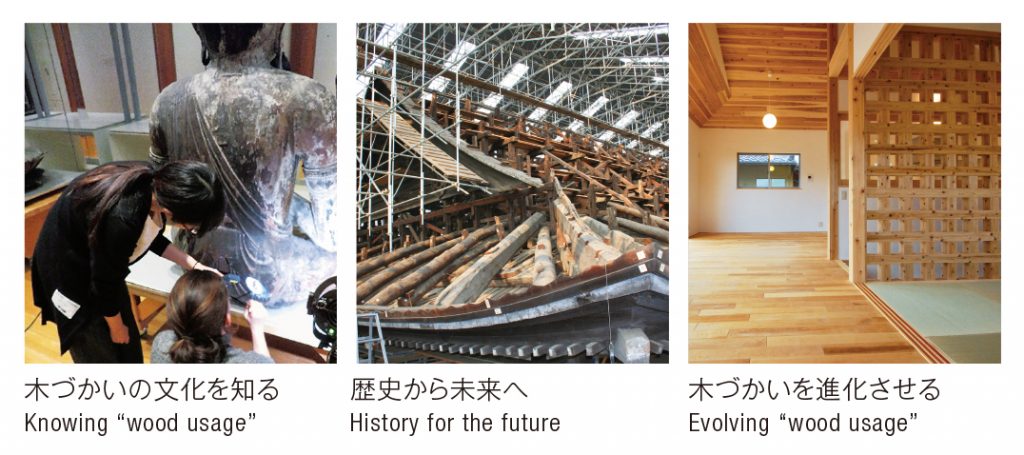ミッション 5:高品位生存圏
Updated: 2025/04/14
人類の産業・経済活動の急速な拡大により、生存圏の特性に大きな変化が生じています。人の健康や安心・安全な生活を支える生存環境もおびやかされています。そこで、これまでのミッションの成果を基礎に、人の健康や環境の調和、脱化石資源社会の構築、生活情報のための宇宙インフラ構築とその維持、木の文化と木材文明による社会貢献などに取り組み、生存圏の質を向上させます。ミッション5は、生存研が平成27年度まで5年をかけて推進してきた課題設定型共同研究「生存圏科学の新領域開拓」の発展型と位置づけることができます。国内外のコミュニティと連携しつつ、生存研のミッション全体の成果をもとに、人をとりまく生存環境の向上をめざした課題解決型の研究を推進します。
令和6年度 ミッション5-1活動報告
令和6年度 ミッション5-2活動報告
令和6年度 ミッション5-3活動報告
令和6年度 ミッション5-4活動報告
研究ハイライト (タイトルをクリックすると関連ページにジャンプします)
非食用イネ科バイオマスからのバイオ燃料・バイオプラスティックの生産
香港大学との国際共同研究により、バイオ燃料・バイオプラスティックをより効率的に生産するためのイネ科バイオマス植物の分子育種に有効な新しい遺伝子の同定に成功しました。
マイクロ波を用いた無線電力伝送の社会実装実験
国家戦略特区制度を利用して、電池レスセンサーへのワイヤレス給電(コードを使わず、電磁界や電磁波で電力を送る技術)の社会実証実験を京都府相楽郡精華町役場にて開始しました。
人の健康・環境調和(生理活性物質、電磁波、大気質)
植物バイオマスに由来する生理活性物質、電磁波の生態影響、大気質と安心・安全をテーマに、人の健康ならびに環境との調和に資する研究を推進します。
脱化石資源社会の構築(植物、バイオマス、エネルギー、材料)
マイクロ波によるエネルギー伝送、有用な形質をそなえた植物の育成と、エネルギー、化学品、材料への変換システムを研究し、脱化石資源社会の構築に貢献します。
日常生活における宇宙・大気・地上間の連関性
宇宙システムは、生存圏を支える重要な社会インフラである測位・観測・
通信機能などを提供しており、その機能は宇宙・大気環境や地上システムと
密接に連関している。スペースデブリのMUレーダによる観測、衛星測位
システムによる大気に関する研究、宇宙からの大気センシング技術、宇宙環境
の電力系統への影響などの研究を推進する。
木づかいの科学による社会貢献(木造建築、木質住環境、木質資源・データベース、木づかいの変遷)
日本の木にまつわる文化交流の研究は、日本と近隣諸国との関係を深く知ることにつながります。木づかいの正しい理解にもとづく未来型木質住環境を創成し、持続可能な循環型社会構築に寄与します。


